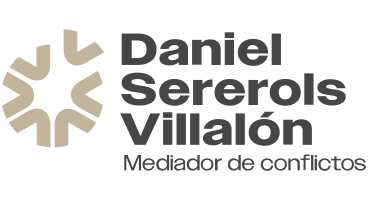Deontological duties
of conflict mediators and lawyers (as agents of peace and promoters of concord)
Mediators
In Catalonia, the deontological duties of conflict mediators are mainly regulated by Law 15/2009, of July 22, 2009, on mediation in the field of private law, as well as by the Code of Ethics of Mediation of Catalonia, approved by the Generalitat de Catalunya. These principles guarantee the ethics and quality of the professional practice of mediation.
1. Voluntariness and Party Autonomy
- The mediator must at all times respect the will of the parties, ensuring that they participate freely in the process.
- It cannot impose solutions or influence decision making.
2. Impartiality and Neutrality
- It must ensure equitable treatment of all parties without favoring any party.
- He cannot mediate in cases where he has a conflict of interest or relationship with any of the parties.
3. Confidentiality
- All information shared in the mediation process is strictly confidential.
- It may not be disclosed without the express consent of the parties, except as provided by law.
4. Independence and Absence of Conflict of Interests
- The mediator should refrain from intervening in cases where there may be a conflict of interest.
- If at any time he detects that his independence is compromised, he should resign from the mediation.
5. Transparency and Information to the Parties
- It should clearly explain to the parties what the mediation consists of, its rules and its legal implications.
- You should also disclose your fees and any possible additional costs.
6. Competence and Continuing Education
- The mediator must be duly qualified and maintain continuous training in mediation and conflict resolution.
- It is recommended that you are registered in the Registre de Mediadors de Catalunya to accredit your training.
7. Diligence and Good Professional Practice
- It must act responsibly, rigorously and professionally throughout the process.
- He must avoid any conduct that may discredit the profession or harm the parties.
8. Fostering Dialogue and Constructive Communication
- Its main function is to facilitate communication between the parties, promoting understanding and the search for solutions.
- You should avoid any type of pressure or coercion during the process.
9. Prohibition of Legal Advice or Final Judgment
- He may not act as a lawyer or give legal advice to the parties.
- Its role is to help the parties find their own solution, not to pass judgments or impose settlements.
Reference regulations in Catalonia:
- Law 15/2009, on mediation in the field of private law.
- Decree 135/2012, of October 23, 2012, approving the Regulations of Law 15/2009.
- Code of Ethics of the Mediation of Catalonia.
Lawyers
In Spain, and especially in Catalonia, the legal profession has the ethical and professional responsibility to advise its clients at the appropriate time on the different options for conflict resolution. This includes the possibility of negotiating, reaching an out-of-court settlement or resorting to alternative methods provided by law, as a complementary or substitute to the judicial process.
- Art. 20.1. b) of the Rules of the Catalan Bar Association of the Consell dels Il-lustres Col-legis d’Advocats de Catalunya (Council of the Bars of Catalonia).
- Art. 12.8 of the Deontological Code of the Spanish Legal Profession.
- Point 3.7.1 of the Code of Ethics for European Lawyers.
Art. 20.1. b) Regulations of the Catalan Bar Association of the Consell dels Il-lustres Col-legis d'Advocats de Catalunya, as amended by Resolution JUS/110/2019, of January 22:
“Rights and obligations of the legal professional and the client:
1. The client has the right to be informed by the legal professional who advises or defends him/her, and he/she has the obligation to inform his/her client of the following circumstances:
(…)
“b) The possible results of their actions, without promising anything that does not depend exclusively on this action. The legal professional must try to dissuade the client from promoting conflicts or exercising unfounded legal actions. However, the lawyer must inform the client of the convenience of out-of-court agreements and of the alternative dispute resolution formulas provided by law, other than legal action”.
Art. 12. 8 of the Code of Ethics of Spanish Lawyers, approved by the Plenary of the General Council of Spanish Lawyers on March 6, 2019:
“The client shall be advised and defended with the utmost zeal and diligence, assuming personal responsibility for the work commissioned, without prejudice to the collaborations that may be sought. The client shall always try to find the most appropriate solution to the assignment received, advising the client at the appropriate time regarding the possibility and consequences of reaching an agreement or resorting to alternative dispute resolution instruments”.
Point 3.7.1 of the Charter of Essential Principles of the European Legal Profession and Code of Ethics of European Lawyers. Adopted at the CCBE Plenary Session of October 28, 1988 and amended at the Plenary Sessions of November 28, 1998, December 6, 2002 and May 19, 2006:
“The lawyer shall at all times try to seek the most appropriate solution in terms of cost-effectiveness, and shall advise his client at the appropriate times as to the convenience of reaching an agreement or resorting to alternative dispute resolution methods”.
